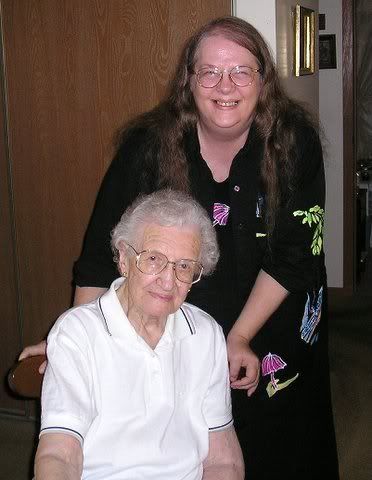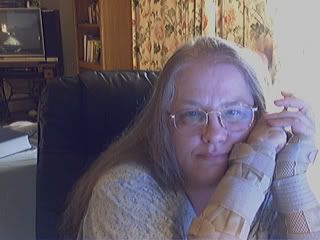One more to go ... one more short one left ... maybe start early on the last long one?

Ok back again … Sunday morning bout 10:20 … We have an hour and 40 minutes to do research, but we’ve been thrown a curve ball right away … we have to incorporate another reading. So, we need to look into that and other … I think this week’s assignment required we read 3 chapters or about 120 pages. I know that isn’t going to happen … I hope to all pieces that someday I could get back to what I missed out on. I’ve enjoyed this text and most that Capella has offered. I just hate to lose out on knowledge. Ok, let’s skim once more the task requirements.
u10d1 Health and Stress
For this activity, you will discuss an article from the supplemental text and the readings from this unit.
Instructions:
1. Read the Cohen, Tyrell, and Smith 1993 article, "Negative Life Events, Perceived Stress, Negative Affect, and Susceptibility to the Common Cold," that has been reprinted in your supplemental text as Reading 17.
2. Analyze the connection between physical health and stress.
3. Describe some ways of coping with stress.
Notes seems to start about here …
Ok, we’re having a problem here we have to resolve. The research timer went off, but we still have 10 pages to read … that’s an hours work. We don’t have an hour … so … let’s get some more coffee set the timer … SKIM and get on with it … go to the washroom? Wouldn’t hurt! BRB
Ok, back again … the time is now 12:30 … we’re about ½ hour into the 2 ½ hours available to write. We’re only going to used the two resources we have. We need to think through the note process of the material just read. Officially I’m past the resource gathering, but I think we should spend time gathering our book notes for the things that pop up as most important. That will help us focus and limit the scope of the paper … most likely something personal in this paper will be presented … I do like the focus on coping although I thought the book not very helpful in good new info. This has to be something of another day though. For right now … let’s collect a few notes.
Ok, back again … the time is now 1 pm. We’ve finished the collection of notes and we have 1 ½ hours on the clock to write the paper … it is going to be a quick shot, but I think we can be close to on target. We’re still very conscious, that we have another paper to write this evening. Hopefully the research will be down to nothing, because the assignment is asking for something more reflective. This should help keep up our optimism. WHICH it turns out is a pretty good deal.
Ok, need to concentrate … where exactly do we want to focus now … what is going to be our perspective.
Analyze the connection between physical health and stress, then describe ways of coping with stress.
Start paper here …
Topic: u10d1 Health and Stress Date: March 18, 2007 3:02 PM
Subject: In response to the assignment from Ann
Author: Garvey, Ann
Last edited on: March 18, 2007 3:10 PM
The research completed by Cohen, Tyrrell, & Smith (cited in Fein & Kassin, 2005, p. 216) concludes that “psychological stress is associated with increased susceptibility to biologically verified infectious disease processes. When demands imposed by events exceed ability to cope, a psychological stress response was elicited.” They defined stress as “an index including negative life events, perceived stress, and negative effect.” Their experiment included infecting people with cold viruses to see if the people under greater stress would fall more prey to the cold viruses. This study was approved by the Harrow District Ethical Committee and they obtained informed consent (p. 218).
People who are more likely to be stressed are ones who have gone through change (Brehm, Kassin, & Fein, 2005, p. 518), are hostile (p. 522), or feel helpless and/or hopeless (527). In analyzing the common denominator it would seem that in many cases that the people who are feeling stressed are the ones who don’t feel they have control, or as a matter of fact aren’t in very good control. If your situation requires you to change or you are quickly angered it may be that you are blaming others or other situations for throwing you off-balance, rather than acknowledging one’s ability to self-control by coping. In these cases often your sense of control is given outside yourself. One method that has worked over time is to claim responsibility by making statements that start with “I” rather than “you.” Another method is to be active rather than reactive, such as getting a jump on the day. In the case of being helpless or hopeless, these people often wrongly blame themselves so in effect think they have control when they don’t. Many people whose life seems out of control will live either in the past or future, and in those time zones you cannot implement the changes you need to make to help yourself (p. 534).
With burnout, you don’t utilize the time in the present to move past the situation or people who are bringing you down. Burnout is both personally and professionally overwhelming and affects the ability to cope. It appears the more chronic the stressor the more severe our stress will be (Brehm, Kassin, & Fein, 2005, p. 525). In addition, “studies show that the accumulation of daily hassles contributes more to illness than do major life events (Kohn et al., 1991), with interpersonal conflicts being the most upsetting of our daily stressors and having a longer –lasting impact than most others (Bolger et al, 1989 as cited in 2005, p. 518). One reason for this might be because the immune system, which fights invasive body substances, runs down over time (p.523). If a person becomes sick or tired, or unable to think clearly, he is less likely to handle proactively the conditions that need to be handled. Likewise people who have unhealthy coping mechanism such as those who smoke, overeat, under exercise, drink, etc become more prone to stress or illness.
The connection between physical health and stress can be minimized by the effort to become hardier. People who are hardy “have three characteristics: (1) commitment, a sense of purpose with regard to work, family, and other domains; (2) challenge, an openness to new experiences and a desire to embrace change; and (3) control, the belief that one has the power to influence important future outcomes” (Brehm, Kassin, & Fein, 2005, p. 527). Hardier people take proactive steps to lessen the impact of stress before it happens. These people utilize various coping methods such as distraction (p. 534) or coping methods that are described as problem- or emotionally-based (p. 527). Distractions are absorbing, demanding, and engaging (p. 537). They take our minds off our problems and are often centered away from oneself. Problem-based coping is resolving issues that are manufacturing stress and emotional-based coping is working through various affective moods and feelings. A positive attitude goes a long way. Lastly, the affects of stress can be lessened by the support of friends, family, or church members (p. 537).
Brehm, S. S., Kassin, S., & Fein, S. (2005) Social psychology [6th ed.]. Boston: Houghton Mifflin Company.
Fein, S. & Kassin, S. (2005). Readings in social psychology: The art and science of research [3rd ed.]. Boston: Houghton Mifflin Company.
 Paper Ends here ...
Paper Ends here ...Hmm if you got to here ... we're probably finished with the last half hour break and have bedded-down with the next paper ;)
















